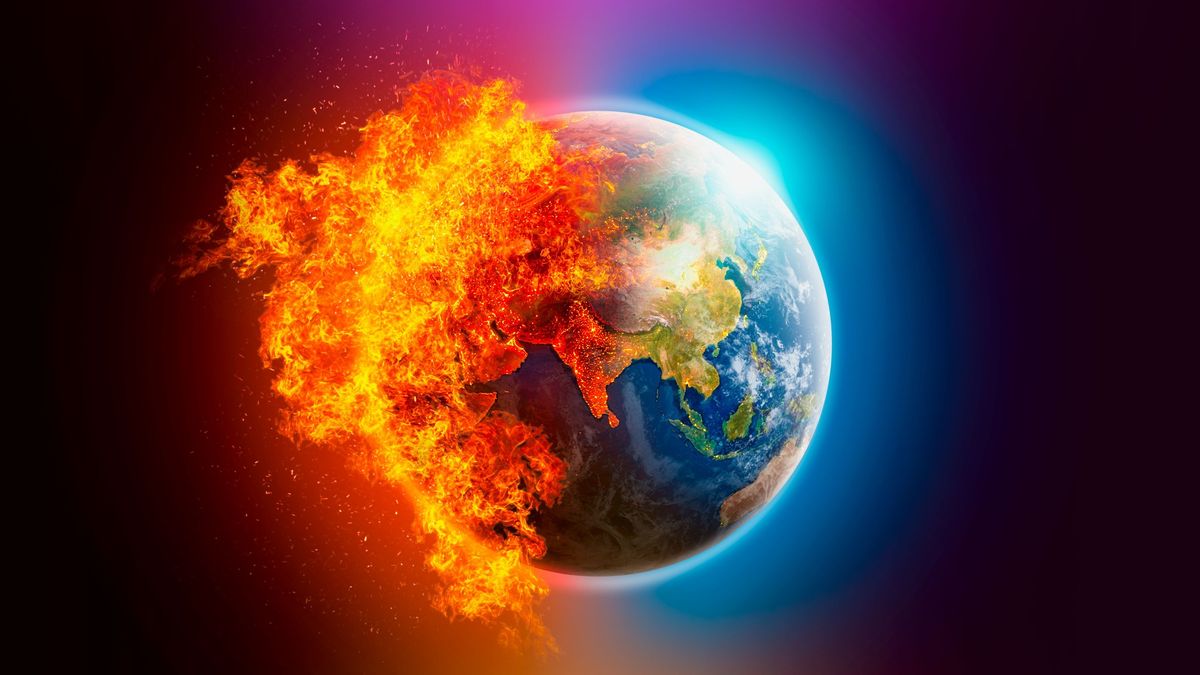We were all stunned by the sweltering heat waves that occurred in the middle of September when temperatures are typically cooler. The hurricanes currently affecting Florida and the Southern states are especially intense. All over the world, people are facing odd occurrences of nature, whether that be droughts during a usually rainy season, or wildfires in areas with lots of usual rainfall.
Junior Vennela Kunchala was shocked at the weather, as she states that “It was unreasonably hot last year during the fall season, and now this year it is either freezing cold or burning hot.” Areas with consistent climates are now changing slowly throughout the years. Confusion has arisen from citizens of all countries – why are climate changes so unpredictable, and what is causing them?
In both hemispheres, people are expressing their concern for odd conditions, and scientists have researched that there are many factors resulting in this strange climate controversy. Ever since the Industrial Revolution, which occurred in the late 18th century primarily in Great Britain, the Earth’s countries have individually worked to become an international superpower. One by one, as the Industrial Revolution spread its roots, each country struggled its way to success. New and easier ways of living increased the number of jobs and labor needed to keep the economy on its toes.
Given this, countries worked on creating an efficient and reliable economy through manufacturing processes that took a toll on the environment. Black smoke composed of a multitude of harmful chemicals was released into the air, affecting the surrounding nature. Many forests were destroyed utilizing fire as a more “efficient” way to obtain lumber. Farmers loaded their land with multitudes of cows to be fed and then eventually killed for meat.
All these industrial and agricultural processes have a similar repercussion: the contribution of an unreasonable and enormous amount of carbon dioxide into the atmosphere. Carbon dioxide is a greenhouse gas, which means that when too much of it is released into the atmosphere, it creates a “bubble.” The bubble ends up trapping all heat into the atmosphere, increasing the temperature of our Earth.
Because of this greenhouse effect, the glaciers are melting and our cooler seasons have bouts of sweltering heat. This effect is predicted to worsen throughout the years, and we certainly do not want September and October to transition to even more months of summer, right? Even now, the weather is switching from freezing cold winds to temperatures suddenly above 70 degrees Fahrenheit. The massive increases in carbon dioxide are increasing the intensity of all weather occurrences.
Large cities with tons of factories and car use are home to some of the highest levels of carbon emissions recorded. However, these cities are working on controlling emissions by implementing the use of free public transportation, which reduces the amount of carbon emissions from the intensive use of cars. There are limits set around the world on how many trees companies can cut down. Cows are not being bred in the huge masses they once were bred in. Slowly, everyone is learning how to embrace our environment and end the climate crisis engulfing our world today.
In the long run, our Earth will gradually increase temperature and melt those glaciers, eventually leading to the rise in sea levels as we have all heard since we were young. It is imperative that as young students we strive to work on the change we want to see in the world.
“Although our country is not at the top of the list for highest carbon emissions per capita, we still have made our ‘environmental footprint’ well known,” AP Biology teacher Mrs. Sobieski said.
“The best we can do to continue to support our environment is to make sure you are an advocate and you educate others. Some ways that you can decrease carbon emissions are as follows: carpool or use mass transit, turn off the lights when you leave a room and recycle,” she continued.
Given the harsh truth that our Earth is suffering under human activity, we can begin to search for solutions that can change the course of our generation’s future.


